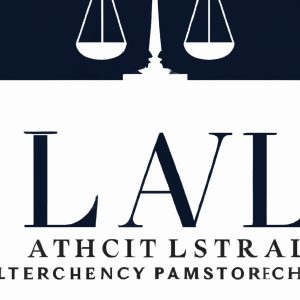In the intricate world of property law, the concept of “estate in severalty” stands as a fundamental pillar upon which countless legal proceedings are built. Defined as the absolute ownership of property by a single individual, this term carries significant weight in real estate transactions, probate matters, and estate planning strategies. As seasoned practitioners in the realm of estate law, we at Morgan Legal Group understand the nuances and implications of this pivotal doctrine. Join us as we delve into the complexities of estate in severalty and illuminate its vital role in shaping the landscape of property ownership.
Understanding Estate in Severalty: A Comprehensive Overview
When it comes to understanding estate in severalty, it is crucial to grasp the concept of sole ownership of a property or real estate. In this scenario, the property is owned by a single individual or entity, without the need for any co-owners or joint tenants. This type of ownership grants the sole owner complete control and decision-making power over the property. It is important to note that estate in severalty is commonly seen in situations where an individual personally owns a home, land, or other real estate assets.
One of the main advantages of estate in severalty is the ease of decision-making and control over the property. This ownership structure allows the sole owner to make decisions regarding the property without the need for approval from any other party. Additionally, in the event of the owner’s passing, the property will be passed down according to the terms outlined in their Will or estate plan. This type of ownership provides clarity and simplicity in the management of real estate assets.
Key Features of Estate in Severalty Explained
When it comes to real estate ownership, estate in severalty is a term that refers to sole ownership. This means that the property is owned by just one individual or entity, without any co-owners. There are several key features of estate in severalty that are important to understand:
- Exclusive ownership: The owner has full control over the property and can make decisions about its use, development, and transfer without needing approval from any other owners.
- Liability: The owner is solely responsible for any liabilities associated with the property, such as taxes, mortgages, and maintenance costs.
- Inheritance: Upon the owner’s death, the property will pass according to their will or state laws of intestate succession, without the need for co-owners to agree on how the property should be distributed.
Overall, estate in severalty provides the owner with a high level of autonomy and control over their property. This type of ownership can be beneficial for individuals who want to have complete authority over their real estate assets and make independent decisions regarding their use and transfer.
Benefits and Limitations of Holding Property in Severalty
When an individual holds property in severalty, they are the sole owner of the property without any co-owners. This type of ownership provides several benefits, such as:
- Control: The owner has complete control over the property and can make decisions without having to consult or get approval from other owners.
- Flexibility: The owner can freely transfer, sell, or mortgage the property without the need for consent from others.
- Privacy: Since there are no co-owners, the owner can maintain privacy regarding their assets and decisions related to the property.
However, holding property in severalty also has its limitations, including:
- Lack of Shared Input: The owner may miss out on the benefits of shared input and diverse perspectives that co-ownership can bring.
- Increased Liability: The owner is solely responsible for any liabilities or debts associated with the property.
- Succession Challenges: In case of the owner’s death, transferring the property to heirs may be more complex without clear co-ownership arrangements in place.
Expert Recommendations for Managing Estate in Severalty
When it comes to managing estate in severalty, it is crucial to understand the legal implications and responsibilities that come with it. Estate in severalty refers to when a property is owned by a single individual, without any co-owners or partners. This type of ownership gives the individual complete control over the property and the ability to transfer or dispose of it as they see fit.
To effectively manage an estate in severalty, it is recommended to seek guidance from experienced legal professionals who specialize in estate planning. Some include creating a comprehensive Will, establishing a trust to protect assets, and regularly reviewing and updating legal documents to ensure they reflect your current wishes and circumstances. Additionally, working with a knowledgeable attorney can help navigate any legal complexities and ensure that your estate is managed in a way that aligns with your goals and objectives.
Q&A
Q: What is the definition of estate in severalty?
A: Estate in severalty refers to ownership of real property by one individual or entity, as opposed to multiple owners or co-owners.
Q: How is estate in severalty different from other forms of ownership?
A: Estate in severalty differs from forms of ownership such as joint tenancy or tenancy in common, where multiple individuals have a shared interest in the property.
Q: What are some advantages of owning property in severalty?
A: Owning property in severalty allows for full control and decision-making power over the property without having to consult with other owners. This can make it easier to manage and dispose of the property.
Q: Are there any disadvantages to owning property in severalty?
A: One potential disadvantage of owning property in severalty is that the owner bears sole responsibility for all costs and liabilities associated with the property. Additionally, in the event of the owner’s death, the property may be subject to probate.
Q: How can estate in severalty be transferred?
A: Estate in severalty can be transferred through a variety of methods, such as a will, trust, or deed. It is important to consult with a legal professional to ensure that the transfer is executed properly.
Q: What are some common misconceptions about estate in severalty?
A: One common misconception is that estate in severalty automatically means sole ownership with no possibility of sharing ownership in the future. However, it is possible to convert an estate in severalty to a shared ownership arrangement if desired.
To Wrap It Up
As we wrap up our exploration of estate in severalty, we can see the importance of understanding this legal concept in the realm of property ownership. Whether you are a seasoned real estate investor or a first-time buyer, knowing the ins and outs of estate in severalty can guide you through the complexities of property law. By holding sole ownership of a piece of property, you have the autonomy to make decisions and control the fate of your estate. So, the next time you come across the term ”estate in severalty”, you’ll have a clear understanding of what it entails and how it can shape your real estate journey. Happy investing!











